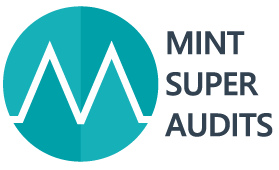Understanding the market value of assets is essential for accurate financial reporting and regulatory compliance, and this is particularly true for self-managed super funds (SMSFs). However, how should a fund’s assets be valued, and why is it crucial to do so at market rates?
This post will cover market value, the rationale for evaluating fund assets, the types of individuals qualified to conduct valuations, and the types of data required to support valuations. This blog is for trustees of self-managed superannuation funds (SMSF) or anyone interested in learning more about asset valuation.

Table of Contents
What is a Market Value?
The market value of an asset refers to the willingness a buyer is prepared to pay a willing seller is the amount that is referred to as an asset’s market value. It presupposes that the transaction is honest, that the product is effectively promoted, and that the parties involved are savvy, clever, and unaffected by any pressure from the outside.
To accurately determine the price of an object, it is necessary to conduct a “transaction at arm’s length.” It suggests that investments ought to be made and maintained in a way that is profitable for the company. To come to this conclusion, you could question whether a competent individual, taking into account the goals they have set for their own firm, would be willing to accept the terms.
Importance of Valuing Fund Assets
The market value of your fund’s assets must be determined for multiple reasons. It is required when compiling your fund’s accounts, statements, and SMSF annual return (SAR) for each income year.
The market value is calculated as of 30 June and represents the amount that a reasonable buyer would pay for the asset if it were for sale.
To ensure a seamless audit process and timely submission of your SAR, it is essential to have completed valuations and relevant evidence to support them before meeting with your auditor.
Who Can Conduct Asset Valuations?
Valuations will be recognised if they show that they were done in a fair and reasonable way. For year-end reporting, the Australian Taxation Office (ATO) says that anyone can do the valuation as long as it is based on objective facts that can be supported.
Even though it is up to the trustees to decide how much the fund’s assets are worth, it is highly suggested that your approved SMSF auditor review your asset valuations every year. Their job is to make sure that assets are valued properly and to evaluate and document whether the valuation basis is correct. Note that they are not the ones who have to do the estimates.
The ATO guidelines say that a real estate value can be done by a property valuation service provider, such as an online service or a real estate agent.
Required Evidence for Valuation
SMSF trustees are not required to make general-purpose financial reports or follow the Australian Accounting Standards Board’s (AASB) accounting rules.
However, they are required to follow rule 8.02B of the Superannuation Industry (Supervision) Regulations 1994 (SISR), trustees must value the fund’s assets at their market value, as described in the Superannuation Industry (Supervision) Act of 1993 (SISA).
To meet the requirements of Auditing Standard ASA 500 Audit Evidence, the auditor must get enough evidence, either from the trustee or from outside sources, to make an opinion about whether or not the SMSF is following regulation 8.02B. In the audit file, the auditor is supposed to write down the proof and any decisions that were made.
Even though the auditor is unable to figure out the market value or value of the fund’s assets, they do make sure that the trustees are reporting the assets at their market value and check to see if the valuation base is right for the type of asset.
Following the Valuation guidelines for self-managed super funds, trustees must give their approved SMSF auditor proof that is both objective and backed up. It is up to the trustee to provide all the necessary papers to back up the valuation.
Valuing Real Property
An external valuation is considered one form of sufficient and appropriate audit evidence to support the trustee’s market value determination for real property.
When valuing real property, trustees may choose a qualified independent valuer (external valuer), particularly if the property represents a significant portion of the fund’s value. While an external valuation is not required annually, trustees must evaluate whether it can support the valuation of the fund’s real estate when producing annual financial statements and accounts.
If the external valuation becomes materially inaccurate or if the property’s value has changed substantially since the last valuation (due to market conditions, natural disasters, or global events such as COVID-19), trustees should obtain a new valuation or other evidence supporting the valuation and not rely solely on the previous valuation.
Other acceptable forms of evidence for establishing the market value of real property are independent appraisals from a real estate agent, recent comparable sales results, a rates notice that is consistent with other valuation evidence, and the nett income yield of commercial properties (applicable only when tenants are unrelated).
A single piece of evidence may not be sufficient unless the fund has recently acquired the property. To comply with regulation 8.02B, it is recommended to assemble a variety of evidence sources.
However, without specific sales details, real estate agent appraisals typically do not comprise sufficient and appropriate evidence on their own.
Conclusion
Following proper procedures, obtaining objective evidence, and working with an approved SMSF auditor are essential when valuing assets at market value. Ensuring compliance with regulations and supplying supported valuations contribute to a more efficient audit process and more accurate reporting for your self-managed super fund.
Contact Us

We’re here to help if you have any more concerns or questions about the market value valuation of assets in your self-managed super fund. Here at Mint Super Audit, we have a team of professionals who are familiar with the nuances of asset valuation and regulatory compliance. You can contact us through here or by dialing (03) 9013 6228.
We are committed to helping you achieve your financial goals and appreciate your trust in us. Don’t be shy about reaching out to us for assistance that’s suited to your unique needs. We hope to hear from you soon.




